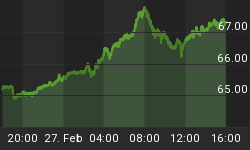While the world waits for shipping data on $216 billion in Chinese goods subject to U.S. tariffs, data from the first round $34-billion round of tariffs that went into effect in July shows that imports of Chinese goods to the U.S. have dropped 21 percent, year-over-year.
Before that, we saw Chinese steel and aluminum exports to the U.S. fall 53 percent from March last year to March this year, according to the Ocean Trade Database, cited by CNBC.
As Seabury puts it, we could end up seeing a lot more washing machine stories.
It was the washing machine that started the trade war in late January this year.
From February to May this year, the price of washing machines for U.S. consumers jumped 16.4 percent in the biggest three-month increase in appliance history.
By January, almost everything that originates in China could be 25 percent more expensive, and U.S. companies are already feeling the heat as they foot the bill for the trade war and pass it onto consumers.
According to the ‘Beige Book’ of bank concerns by the Federal Reserve, not only is it making things for expensive for U.S. companies, but retaliatory tariffs are making it harder for businesses to sell goods for export. Exacerbating things, when tariffs were first announced, businesses went on a buying spree to get goods before tariffs went into effect. Now there’s a supply buildup for some items that are making prices lower and netting companies less for products.
According to the Philadelphia Fed, some first “reported difficulty meeting the prices of foreign competitors who are not exposed to tariffs on the primary input commodities of their products”. Related: Yahoo’s 3.5 Billion Person Data Breach Ends In $50M Settlement
The Dallas Fed noted that “among manufacturers, roughly 60 percent of contacts said the tariffs announced and/or implemented this year have resulted in increased input costs. The share was even higher among retailers, at 70 percent.”
According to Friday’s third-quarter GDP results, the U.S. economy grew at an annualized rate of 3.5 percent, with the trade war dragging GDP growth down by 1.78 points.
It would have been worse if there hadn’t been another surge in inventories as companies once again moved to stock up on pre-tariff items ahead of the implementation of more tariffs. That inventory surge helped by adding 2.09 percentage points to GDP growth, as reported by Business Insider.
The publication cited JPMorgan economist Michael Feroli as saying that “this may have reflected front-loading of imports ahead of scheduled tariff increases – imports which then end up temporarily in stockpiles”.
Last week, Capterpillar said tariffs were increasing its costs and eating into profit expectations, The Washington Post reported.
Earlier in October, Ford said tariffs on metals took around $1 billion in profit from the company, which had sourced most of it domestically.
Tesla said in its earnings report last week that tariffs on Chinese parts could cost it $50 million just in the fourth quarter.
3M also said it expected tariffs to have a negative impact on total sourcing cost in 2019, with its CFO estimating that the company will have an “approximately $100 million headwind from tariffs”.
Trump is set to meet Chinese President Xi Jinping in November at the G20 summit in Argentina, and while some are hopeful that this meeting will lead to positive negotiations amid the intensifying rhetoric, even if Trump decides to deal, Beijing may not take the bait.
Analysts told Bloomberg last week that the China’s global dominance of the supply chain may enable it to ride this out without further negotiations.
By Charles Benavidez for Safehaven.com
More Top Reads From Safehaven.com
















